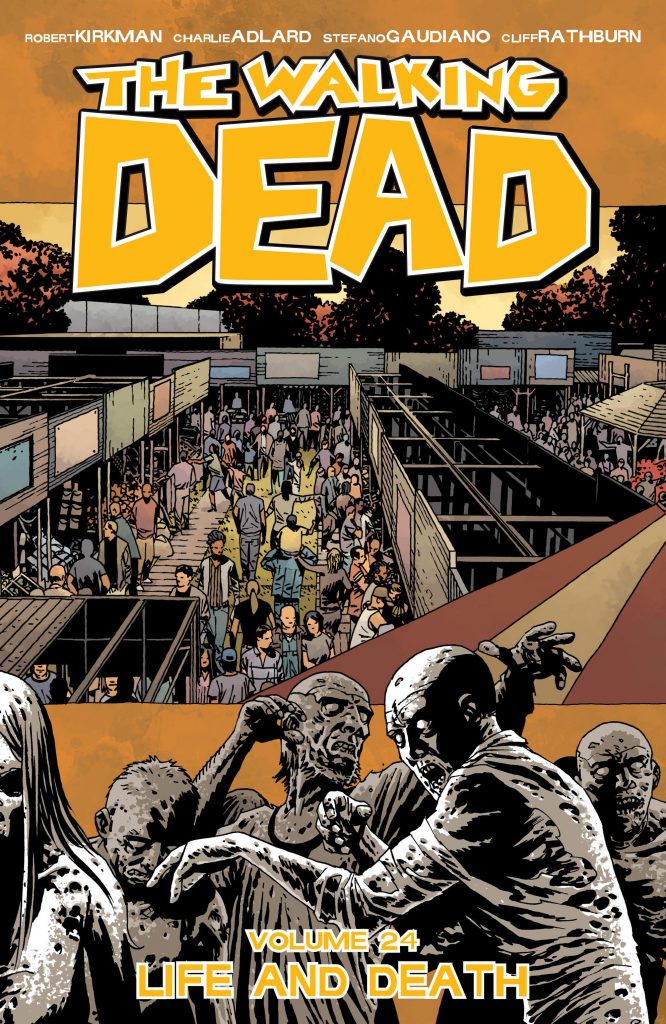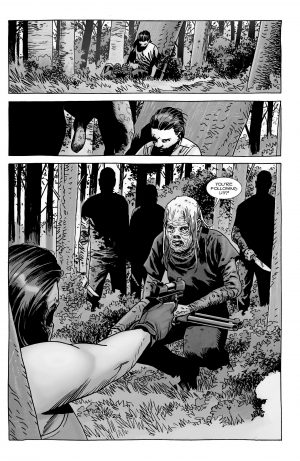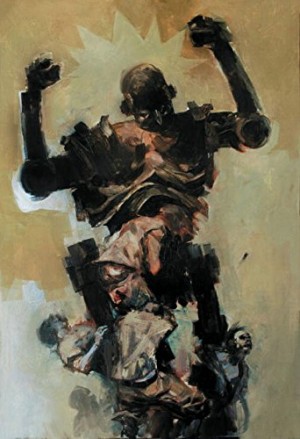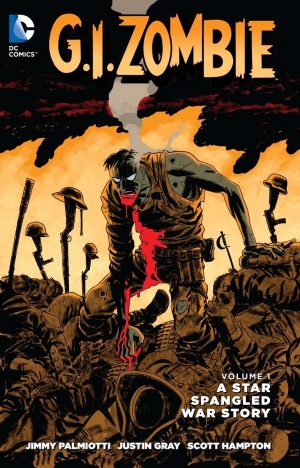Review by Karl Verhoven
In some alternative universe there’s a Charlie Adlard who drew some X-Files stories and never transferred to The Walking Dead. Perhaps he spent an unhappy time trying to mould his style to superheroes before retiring to run a Shropshire pub. It would have been tragic. This book finishes with his 138th Walking Dead story, and he’s been a model of consistency throughout, designing new character after new character, telling the story when it needs to be told, and producing the occasional vista when able. Horror? Oh yes, he can do that as well. Life and Death is no different.
Of course, if it’s Adlard’s 138th Walking Dead story, it’s Robert Kirkman’s 144th, and to celebrate he returns an old favourite character. It’s been some while since we’ve seen Michonne, but she’s not surplus to requirement, just moved into a new role, and we finally learn the guilt she’s been carrying around with her before she met Rick Grimes and co, and of the guilt she’s fostered since. Kirkman’s become very good at endowing the cast with complex emotions, and ensuring these motivate what makes them behave in certain ways. In Whispers Into Screams manipulation was spotlighted, and it continues from a different source in Life and Death. With the zombies no longer seen as a danger, several separate and independent communities linked by manufacturing, farming and trade are flourishing, but the weight of responsibility still hangs heavy on the heads of those overseeing the communities. Different responses to problems characterise the styles of leadership, and that leads to some surprises.
A lot of time has been spent with Carl Grimes over the previous two books. “It’s not normal to look at me without flinching” is one of the conclusions he’s come to about who he is, and how his life may have been saved back in the day, but at the cost of everyone judging him. Kirkman insinuates this isn’t just because of his deformity, but because he’s the son of Rick Grimes. It’s understandable, but somewhat over-sold, an unusual lapse for a title where the characterisation has been so deft.
Another impressive factor of Kirkman’s writing is how he so consistently comes up with new threats, yet they’re each completely different, and he’s done that again with the Whisperers. Until now almost everyone encountered has believed in re-forming the type of society that existed before the zombies, or at least some form of it, be they villain or otherwise. The Whisperers aren’t like that, and their collective belief is as frightening as anything previously seen. By the end of the book Kirkman has hammered this home terrifyingly, and given the past there seems only one inevitable course of action to be followed in No Turning Back. As ever, Kirkman is brutally unsentimental about the cast.
This is the final volume also to be found alongside the seven preceding paperbacks in the massive third Walking Dead Compendium, and it’s also packaged in hardback along with Whispers Into Screams as The Walking Dead Book Twelve.





